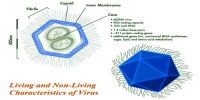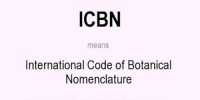Whittaker proposed a five kingdom classification in 1969 He included all the cellular organisms in five kingdoms. such as-Monera, Protocusta, Plantae, Fungi and Animalisa. Later Margulis (197-1) explained Whittaker’s classification in changed and elaborated form, it is known as Phylogenetic or Modern Classification.
Margulis divided the living world into five kingdoms under two super kingdoms
- Super kingdom (I) Prokaryota
- Super kingdom (2) Eukaryota
Super kingdom (1) Prokaryota.
Kingdom-Monera
i) They arc unicellular, filamentous, Colonial or mycelial
ii) Cell has nuclear material but has no nucleolus or nuclear membrane
iii) Plastid and mitochondria are absent in their cell
iv) Cell disision is followed by amitosis
v) Their food taking is usually followed by absorption
vi) Reproduction usuaily takes place through binary fission
e g: Escherichia coli
Super kingdom (2) Eukaryota:
Kingdom-Protoctista:
I) They are unicellular individuals, unicellular colonial or multicellular and eukaryotic
ii) Nuclear material of the cell is surrounded by nuclear membrane
iii) DNA and RNA are present in the chromatin body
iv) Mitochondria are present in their cells
v) Photosynthetic pigment is usually present in the chloroplast
vi) Food taking is followed by absorption, ingestion or photosynthesis
vii) Embryo is not formed in them
viii) Cell division occurs by mitosis
ix) Sexual reproduction occurs
x) Habitat is usually aquatic














